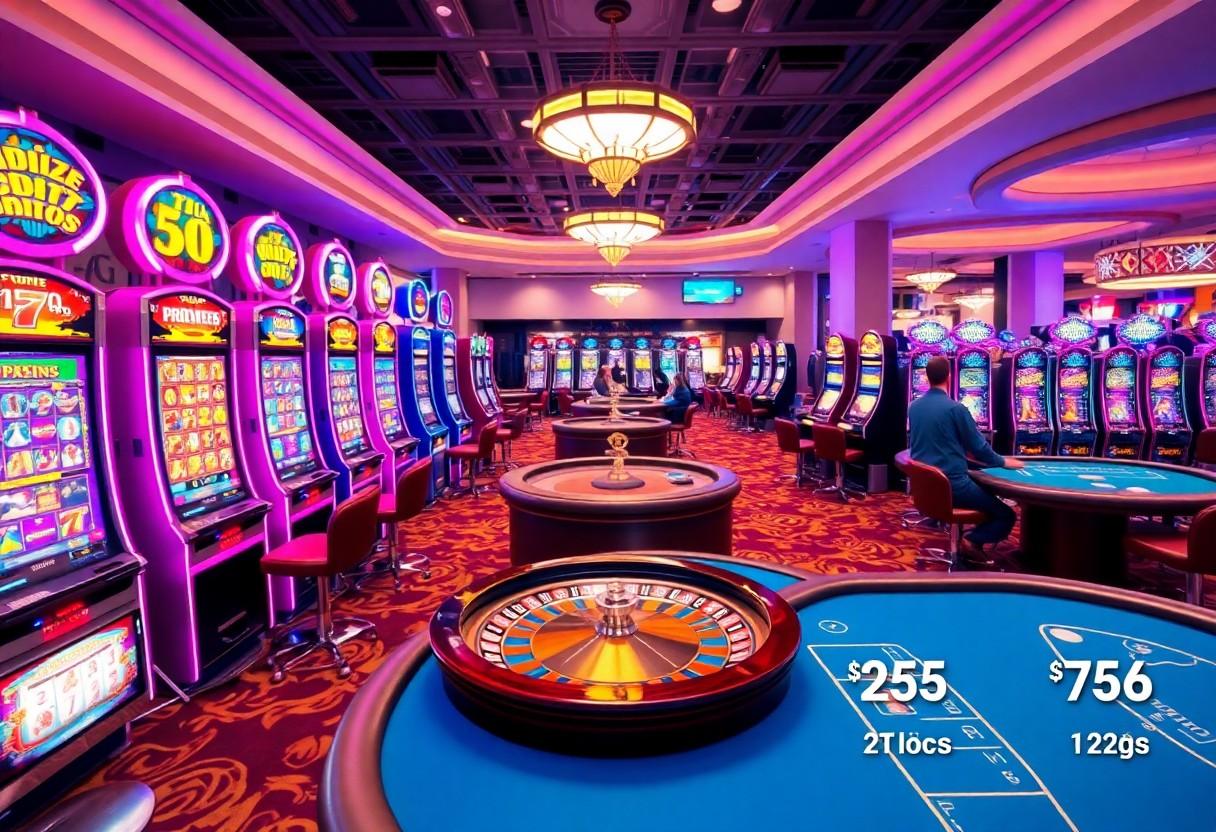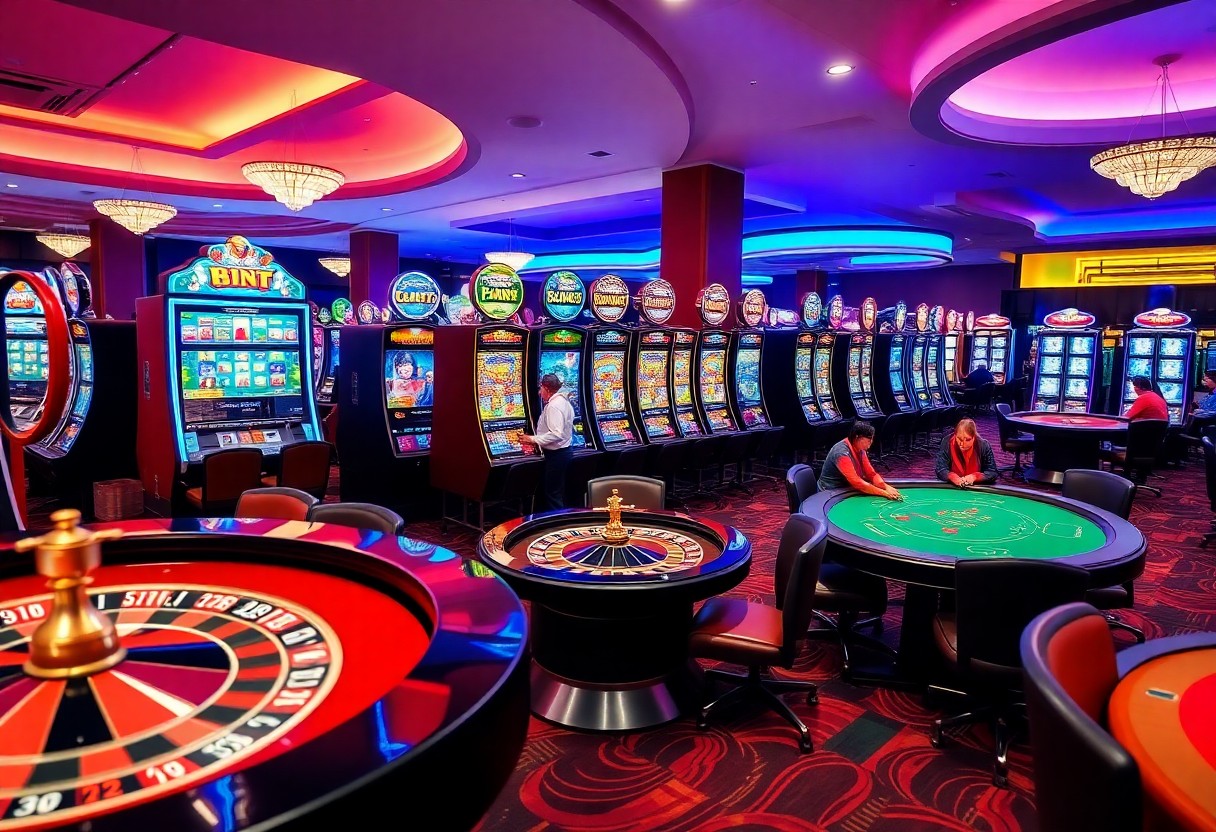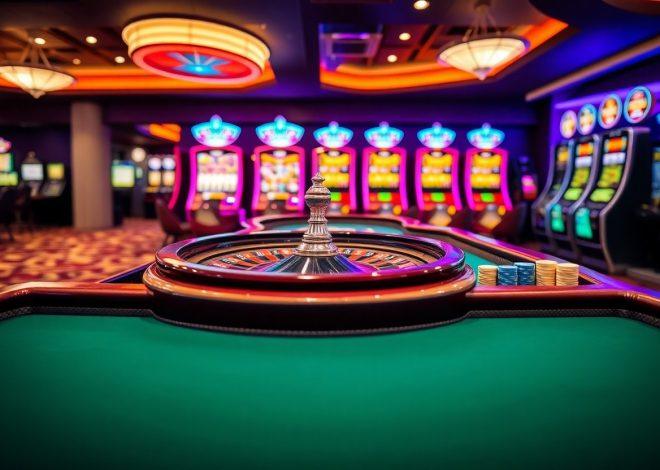
How Casino Games Work – RTP, Volatility, and House Edge Explained
You might be curious about how casino games operate and the factors that influence your chances of winning. Understanding RTP (Return to Player), volatility, and house edge can significantly impact your gaming experience. In this blog post, you will learn how these elements work together to shape your overall gameplay and the odds you face. Grasping these concepts allows you to make more informed decisions about where to play and how to manage your bankroll effectively for a more enjoyable time at the casino.
Understanding Casino Games
To fully enjoy your gaming experience, it’s crucial to understand the mechanics and structures underlying casino games. This insight not only enhances your appreciation of the game but also aids in making informed decisions during your playtime, helping you to strategize effectively and maximize your enjoyment.
Basics of Game Mechanics
Game mechanics involve the rules and interactions that define the gameplay experience. Each casino game is designed with specific odds, payout structures, and player engagement strategies. Understanding these mechanics allows you to assess potential outcomes and employ strategies that can improve your chances of winning.
Types of Casino Games
Game selection in casinos may seem overwhelming, but there are distinct categories to explore. Below is an overview of common types of casino games:
| Game Type | Description |
|---|---|
| Table Games | Traditional games like Blackjack and Roulette. |
| Slots | Popular machines with varying themes and payout structures. |
| Video Poker | A blend of slots and poker strategies. |
| Live Dealer Games | Real-time games streamed with live interactions. |
| Specialty Games | Unique options like Bingo and Keno. |
Understanding the types of casino games can enhance your strategy and enjoyment. Here are the primary categories:
- Table Games: Engage with live dealers and other players.
- Slots: Enjoy various themes and unique gameplay.
- Video Poker: Utilize poker strategies for a distinct experience.
- Live Dealer Games: Experience real-time interaction.
- Specialty Games: Explore entertaining variations.
Any type of game you choose will provide its unique experience.
Return to Player (RTP)
Any time you play a casino game, understanding the Return to Player (RTP) is necessary. RTP is a percentage that indicates how much of the total wagered amount is expected to be paid back to players over time. It gives you a clear idea of how favorable a game is for you, influencing your choices and strategies.
Definition and Importance
The RTP is a vital metric in determining the potential profitability of a casino game. It necessaryly tells you how much money you can expect to win back in the long run from the bets you place. A higher RTP generally indicates a better chance of winning, which is why it is important for shaping your gaming experience.
How RTP is Calculated
The calculation of RTP is based on the total bets placed compared to the payouts made over time. Most games are designed to return a certain percentage of winnings to players, and this is achieved through complex algorithms and random number generators.
Indeed, calculating RTP involves analyzing the total amount wagered and the total amount paid out over numerous rounds of play. This average is typically calculated over hundreds of thousands or even millions of spins or hands. It’s important to note that while the RTP gives you a theoretical percentage, it does not guarantee individual outcomes. You could experience a losing streak despite playing a game with a high RTP. Therefore, understanding RTP can help you make more informed decisions, but it doesn’t eliminate the inherent risks of gambling.
Volatility in Casino Gaming
Many players often overlook the concept of volatility, yet it plays a significant role in determining your gaming experience and potential winnings. Volatility refers to the degree of variation in a game’s payouts; it influences not only how often you can expect to win but also the size of those wins. Understanding volatility can help you choose games that align with your personal risk tolerance and gameplay preferences.
What is Volatility?
Gaming volatility indicates the risk associated with a casino game, particularly in how often and how much you might win. Games with low volatility tend to provide frequent but smaller wins, while high volatility games typically offer larger payouts, albeit less often. By grasping this concept, you can tailor your gaming strategy to suit your financial goals and mindset.
High vs. Low Volatility Games
An necessary aspect of your gaming experience hinges on the choice between high and low volatility games. Low volatility games are characterized by frequent wins, which can keep you engaged and extend your playtime, ideal for players seeking a steady stream of smaller payouts. On the other hand, high volatility games may lead to longer stretches without winning but promise potential for substantial rewards when you do hit a payout. Ultimately, your choice should align with your excitement for risk versus the desire for steady wins.
Also, keep in mind that high volatility games often require a larger bankroll to sustain your gameplay over time, as the longer intervals between wins may test your patience. Conversely, low volatility games are more forgiving, allowing you to play longer on smaller bets. Evaluating your financial strategy and emotional approach to risk can significantly enhance your overall gaming experience. Choosing the right volatility level ultimately ensures that your gameplay aligns with your expectations and enjoyment.
House Edge Explained
Not all games are created equal when it comes to the house edge. This is a built-in advantage that casinos have over players, ensuring they maintain profitability over time. Understanding how this works can help you make more informed decisions about your gameplay.
Definition of House Edge
For every casino game, the house edge is expressed as a percentage that indicates how much of each bet the casino expects to keep in the long run. For example, a game with a house edge of 5% means that, on average, you would lose $5 for every $100 bet.
How House Edge Affects Player Experience
An awareness of the house edge can shape your gaming strategy and expectations. Higher house edges may lead to quicker losses, while games with a lower edge can provide more favorable odds.
For instance, when you choose a game with a lower house edge, such as blackjack, you may find it more enjoyable as your chances of winning increase over time. On the contrary, opting for games with a high house edge, like certain slot machines, could result in rapid losses, leading to frustration. Ultimately, understanding the house edge empowers you to select games that align with your playstyle and budget, enhancing your overall experience in the casino environment.
Strategies for Players
Once again, understanding the nuances of RTP, volatility, and house edge can enhance your gaming experience. By making informed decisions and applying effective strategies, you can improve your chances of enjoying more favorable outcomes while playing casino games. Always aim to maximize your knowledge and approach the games with a strategic mindset.
Selecting Games Based on RTP and Volatility
An imperative part of your strategy involves choosing games with favorable RTP and volatility. Look for games that offer higher RTP percentages, as they statistically return more of your wagered money over time. Additionally, consider volatility—low volatility games provide frequent but smaller wins, while high volatility games offer less frequent but larger payouts. Aligning your preferences with these factors can significantly impact your gaming success.
Bankroll Management Techniques
For successful gambling, implementing effective bankroll management techniques is vital. Properly managing your funds helps you prolong your playing time and may lead to more enjoyable experiences. Establish a strict budget for your gaming sessions, and always stick to it; this will keep your finances intact. Additionally, consider dividing your bankroll into smaller portions for each session to avoid overspending.
Consequently, mastering bankroll management techniques can greatly influence your overall success as a player. By setting limits, you protect your finances and ensure you’re ready for the next gaming session. Use strategies like setting win and loss limits during each session, allowing you to walk away when the time is right. Prioritizing these techniques not only enhances your gaming experience but helps you maintain control over your gambling activities, fostering a healthier relationship with the game.

Common Misconceptions
Unlike what many players believe, casino games are not purely based on luck. Misunderstandings about the mechanics of these games can lead to poor decisions. Recognizing how factors like RTP, volatility, and house edge play a role in your gaming experience is vital to maximize your chances of winning. Educating yourself about these aspects helps you navigate through the thrill of the game with a more informed perspective.
Myths about Casino Games
Above all, many players fall for the myth that a hot streak guarantees future wins or that previous spins affect the outcome of future spins. Such misconceptions stem from a lack of understanding about random number generators (RNG) and how each game round operates independently. Acknowledging these myths allows you to approach casino gaming with a clearer mindset.
Understanding Randomness and Odds
To truly appreciate casino games, you must understand the role of randomness and odds in determining outcomes. Every spin of the roulette wheel or pull of the slot machine lever is driven by random number generators, ensuring fairness and unpredictability in the game.
Casino games are designed with inherent randomness, which means that your decisions or previous outcomes do not influence future events. Each game operates on its own set odds that are carefully calculated based on the game’s structure. This knowledge helps you make informed choices about your bets and strategies. Embrace the fact that while you can seek to improve your odds through understanding RTP and volatility, there is no way to control the unpredictable nature of these games. Your best strategy is to enjoy the experience while being aware of the odds at play.
To wrap up
As a reminder, understanding how casino games work—specifically the concepts of RTP, volatility, and house edge—empowers you to make informed decisions while playing. Knowing your potential returns and risk levels allows you to tailor your gaming experience to suit your preferences and budget. By applying this knowledge, you can enhance your enjoyment and strategy, ultimately making for a more rewarding gaming experience. Always play responsibly and stay informed about the games you choose.



